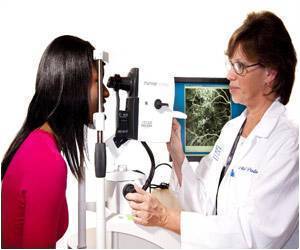Artificial intelligence can be used to predict sudden cardiac death and assess individual risk, offering promising prospects for proactive global health measures.
- Researchers have harnessed AI to predict sudden cardiac death and assess individual risk, offering promising prospects for proactive global health strategies
- Using AI analysis, the study identified individuals with over a 90% risk of sudden cardiac death, a significant breakthrough in addressing this public health concern
- The research introduces a new approach encompassing comprehensive medical data and personalized risk assessment, empowering patients and healthcare providers
Artificial intelligence may help predict - possibly prevent - sudden cardiac death
Go to source).
Identifying High-Risk Individuals with AI Analysis
Using AI analysis, researchers successfully identified individuals with a risk exceeding 90% of experiencing sudden cardiac death, a group that accounts for over a quarter of all such cases. Sudden cardiac death stands as a significant public health concern, contributing to 10% to 20% of overall mortality. Traditional approaches have often struggled to pinpoint high-risk individuals, particularly on a personal level, making this discovery profoundly impactful.TOP INSIGHT
Sudden cardiac death (SCD) accounts for approximately 10% to 20% of all deaths worldwide, making it a significant public health concern #AI #death #medindia
The research findings, set to be presented at the American Heart Association's Scientific Sessions 2023, represent a monumental stride in cardiac healthcare. The research team leveraged AI to analyze medical information sourced from registries and databases in Paris, France, and Seattle.
They examined 25,000 individuals who had experienced sudden cardiac arrest and 70,000 individuals from the general population. These two groups were meticulously matched based on age, sex, and residential area.
A Wealth of Medical Data
The dataset used for analysis comprised over a million hospital diagnoses and ten million medication prescriptions, spanning medical records up to a decade before each individual's demise.Through AI, researchers created nearly 25,000 equations, factoring in personalized health criteria to pinpoint those at a high risk of sudden cardiac death. Each participant in the study received a tailored risk profile that incorporated their medical history, encompassing factors such as treatment for high blood pressure, a history of heart disease, and even mental and behavioral health concerns like alcohol abuse.
This comprehensive analysis can determine factors that either elevate or diminish the risk of sudden cardiac death, specifying a particular percentage and time frame. For instance, an individual might have an 89% risk of experiencing sudden cardiac death within three months. This level of precision empowers healthcare professionals to proactively address and mitigate these risks.
In conclusion, the integration of artificial intelligence into healthcare signifies a significant paradigm shift in our approach to addressing and preventing sudden cardiac death. This research opens a promising avenue for personalized risk assessment, enabling individuals and healthcare providers to collaboratively and proactively mitigate the risk of this life-threatening condition.
- Artificial intelligence may help predict - possibly prevent - sudden cardiac death - (https://newsroom.heart.org/news/artificial-intelligence-may-help-predict-possibly-prevent-sudden-cardiac-death)
Source-Medindia
 MEDINDIA
MEDINDIA





 Email
Email









